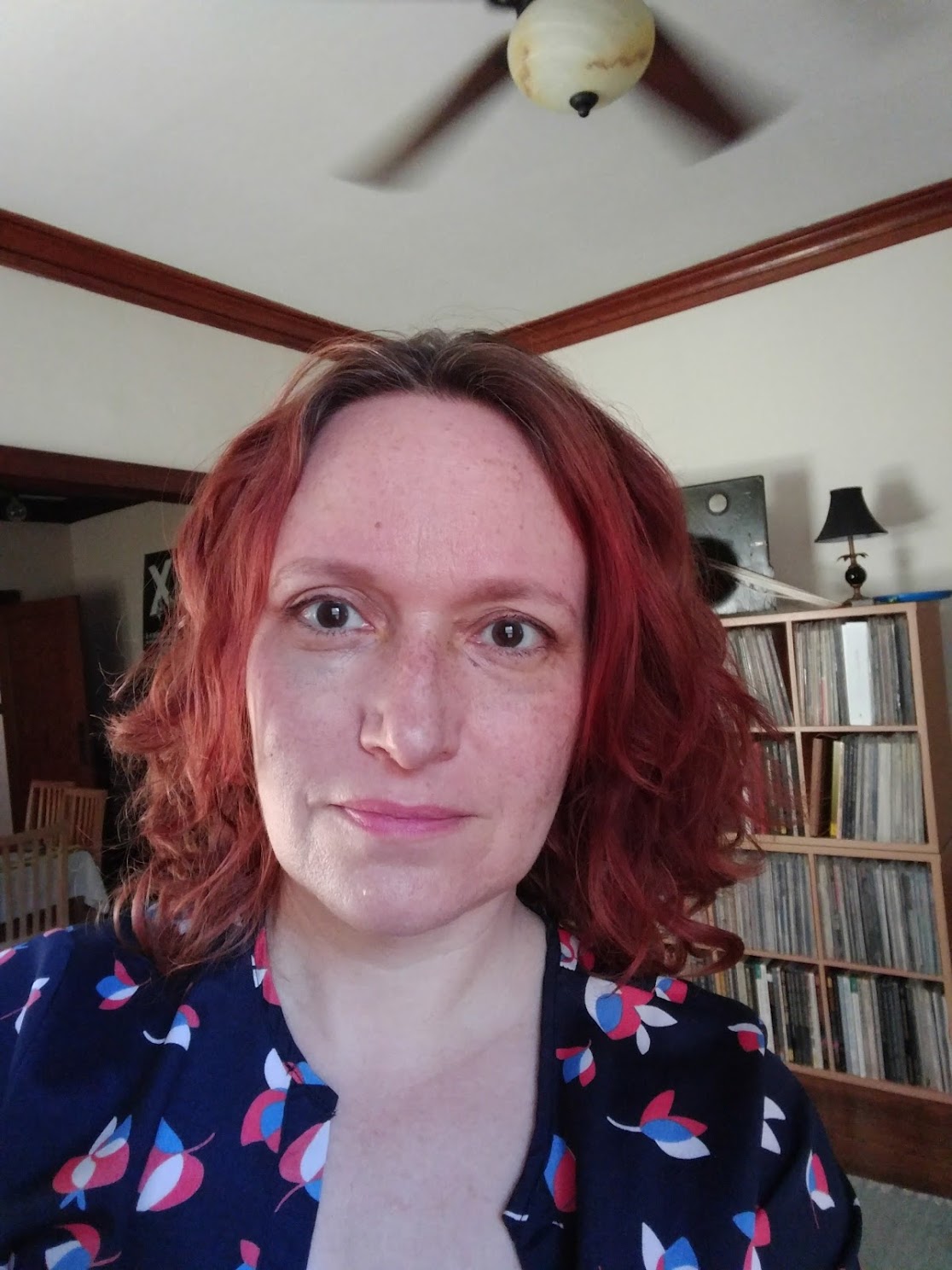It’s now two weeks after my nasal airway surgery and most of the healing has happened at this point. So far? Breathing is amazing. AMAZING. I’ve still got some swelling and stitches (inside my nose!) It’ll apparently take about two months for everything to finish settling, but from here on the changes will be subtle. I know some people who have had far worse surgeries. So much so that they struggle to go to sleep because the pain can be that bad. I had one friend though, how ended up buying a new memory foam mattress, to help her sleep. So if you need to get something like that then go for it, you should try and be as comfortable as possible.
Recovery has been smooth but I’ve been grateful for having twenty years of live theater experience, which I deployed for this week for the covering of bruises. Here’s me one week after surgery, without and with makeup.
I’ve been very pleased that I still look like myself. The swelling will keep going down, albeit more slowly. The big qqestion though is… what do I sound like? As an audiobook narrator, this was one of the things I was worried about since mucking about with the nose and sinuses can change resonance.
So, here, for your amusement, are four recordings of me reading the same piece of text.
Before surgery, as a baseline.
While I’m the hospital with the “rhino rockets” completely clogging my nose.
The day after surgery. In this one, my voice is significantly higher. I think this is from two things.
- My throat was still a little sore from the breathing tube they used during surgery. I think I pitched higher to get out of that range.
- I recorded this earlier in the day than the others, and the voice is typically higher at the start of the day.
Three days after surgery. I’m back to pretty much normal, with maybe a tiny, tiny bit more of a rounded sound.
Two weeks later, where I notice it most is at the extremes of my range. For instance, the deep chest voice that I use for Tybalt in Seanan McGuire’s October Daye series is significantly easier. I usually have to fight a certain nasality there. Likewise, my upper end is way clearer and stupidly high. Blending is easier as I go from chest to head, which is a nice bonus.
Adding nasality back in for character voices might a little bit more work, but that might also be my imagination. It’s still totally there.
So, my overall verdict is:
- Medically, the surgery was fantastic. I love breathing. It’s really neat. (oh, and smells are more vivid, too.)
- Aesthetically, there’s been no change.
- Vocally, I seem to have a better instrument than I did before.



Hurray! Congratulations.
Awesome, Mary! Good on you and congratulations on the results so far. May they prove as long lasting for you as they have for me.
About the only minor downside I can offer up as something to beware of is in regards to the nasal suture sites. Apparently my right nostril site is subject to oozing blood on rare occasions specifically when there is a protracted period of very low humidity. Under those conditions if I traumatize it, such as by blowing my nose forcefully, I risk breaking it open. Hence I just have to be more cautious.
Other than that, life with a roto-rootered sinus passage is quite spectacular.
Thanks for posting – I’ve been wondering how the recovery was going. So glad you’re getting to enjoy breathing!
Yay! Happy that you are happy and sound lovely! Which is very good as you are among my favorite narrators.
I am fascinated by your statement that “the voice is typically higher at the start of the day”. Was that intended to be general? I find low (sung) notes much easier at the start of the day and have heard that this is common, but I don’t know whether the natural pitch follows the extreme.
Ah. Right. This depends a little on the person. For people whose voices are lower when they get up, what’s going on is that the vocal folds are swollen from fluids, phlegm and/or being burned a little bit by stomach acid during the night. This is probably the only time that acid reflux will sound sexy.
Once you’ve had some water, and been standing for a bit, if you don’t do anything to warm up your voice, it’ll be a touch higher than later in the day. Think of it like a muscle. Just like your hamstrings are tighter in the morning, same thing happens with the voice and with the voice, tight raises the pitch.